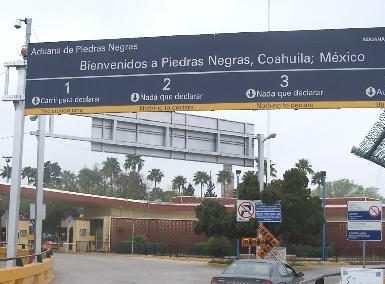In a major relief to businesses, farmers and consumers across Arizona and the nation, the leaders of United States, Mexico and Canada signed the “new NAFTA” agreement today that maintains open trade in one of the largest free trade zones in the world.
“Let’s go,” the leaders of the three nations – President Donald Trump, Prime Minister Justin Trudeau and Mexican President Enrique Peña Nieto – said as they took pen to paper Friday in Buenos Aires where the G-20 Summit is underway.
Remaking the old North American Free Trade Agreement was one of President Trump’s campaign promises. At the time, he called it “one of the worst trade deals ever.”
On Friday, Trump said the USMCA is “probably the largest trade deal ever made.”
The three leaders signed the new U.S. Mexico Canada Agreement, on the last day of Nieto’s term as president. Mexico’s new president, Andrés Manuel López Obrador, will be sworn in on Saturday.
Business and consumer groups applauded the action.
“The signing of the USMCA is a landmark milestone for American manufacturing workers,” the National Association of Manufacturers (NAM) said in a statement immediately after the three leaders signed the new agreement. “The Manufacturers called for a trilateral agreement, and this moves us one step closer to restoring certainty to the North American market, the biggest market for U.S. exports in the world.
“By securing the relationship with our North American allies, we are also better positioned to demonstrate a strong and united front against China’s unfair trade practices and end the harm they inflict on manufacturers in America.”
“Competition isn’t just limited to the store down the street. Companies must contend with competitors around the globe — the USMCA moves North America in the right direction and strengthens our relationship with our international trade partners. NAFTA is a 24-year-old agreement that was in need of modernization to ensure that North America remains competitive and meets the needs of our changing economy and technological advances.
“Arizona’s international relationships have never been stronger and the opportunities to prosper from international partnerships and cooperation have never been greater,” said Governor Doug Ducey in a statement. “As a border state that exports over $20 billion in goods around the world, Arizona and Arizona-based companies stand to benefit from the protections and opportunities that this new agreement provides. We are committed to working closer with our international partners to preserve and strengthen our partnerships, and hope that Congress moves swiftly to take action on reviewing this agreement.”
Left in place are tariffs the Trump administration imposed on imported steel and aluminum, including from Canada and Mexico. GM’s recent announcement that tariffs are partially responsible for it shutting down auto plants in the U.S. and Canada have renewed calls from the business community to remove the tariffs and to tamp down administration threats to levy new tariffs on imported autos.
“Despite the excellent progress that has been made on the USMCA, the imposition of steel and aluminum tariffs and the threat of additional tariffs on auto imports are still a self-inflicted drag on the U.S. economy,” Arizona Chamber of Commerce and Industry President and CEO Glenn Hamer said. “After having done so much to increase the country’s global competitiveness by dramatically reducing the corporate income tax rate in the Tax Cuts and Jobs Act, slapping tariffs on critical inputs in the manufacturing process or on foreign autos only causes prices to rise and hurts domestic producers and U.S. consumers. The steel and aluminum tariffs on our friends Mexico and Canada should be removed as soon as possible and any threats of auto tariffs should be taken off the table.”
Auto dealers still face complex new rules under the new agreement that hike auto worker wages and require a certain percentage of vehicle parts be made in America.
One of the most positive outcomes of the pact are new digital trade and protections for intellectual property and technology advances. These protections could spur even more trade between California, Arizona and Mexico.
There’s one more step to final approval. All three countries top legislative bodies must officially approve the agreement. As such, the agreement won’t take effect until 2020.
“A failure to swiftly take up the implementing legislation risks rattling investor confidence and could weaken the overall economy,” Hamer said. “The executive branch has done its job, now it’s time for the House and Senate to do theirs.”
NAM, which is the largest manufacturing association in the United States, representing small and large manufacturers in every industrial sector and in all 50 states, also urged Congress to move quickly to review the agreement before the end of the year.
“Manufacturers need certainty now, not later. With 2 million American jobs dependent on exports to Canada and Mexico, Congress should move expeditiously to review the USMCA before the end of this year,” NAM said in a statement today.
Meanwhile, Trump is meeting with Chinese President Xi Jinping at the G-20 summit over a separate trade war that threatens to upend the world economy. If Trump’s concessions are not met, he has threatened to increase import taxes by 15 percent on $200 billion in Chinese goods, and add new tariffs on an addition $267 billion in goods in January.
Stay tuned.
To watch the signing of the agreement live, go to USMCA agreement.
















Add comment